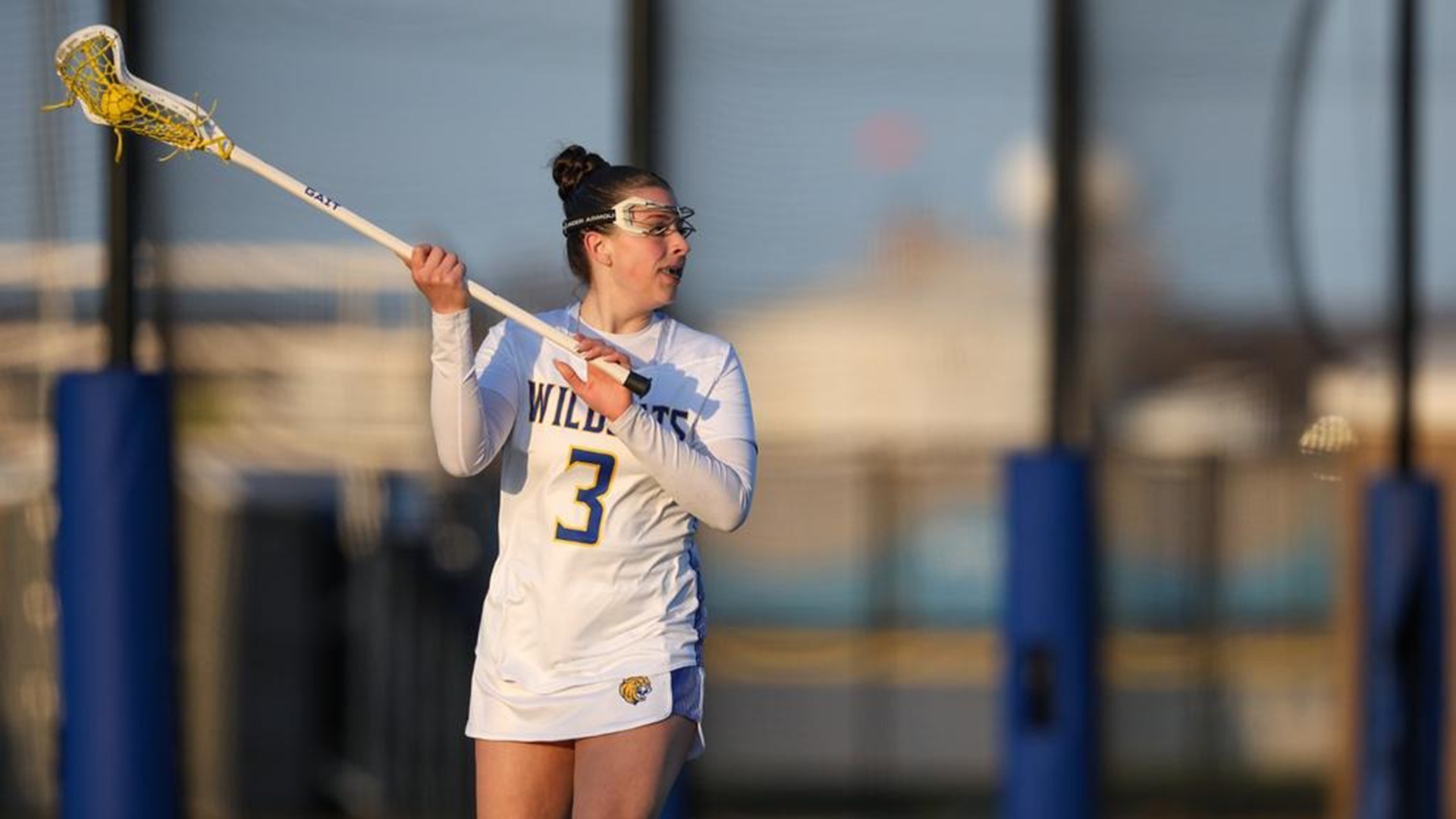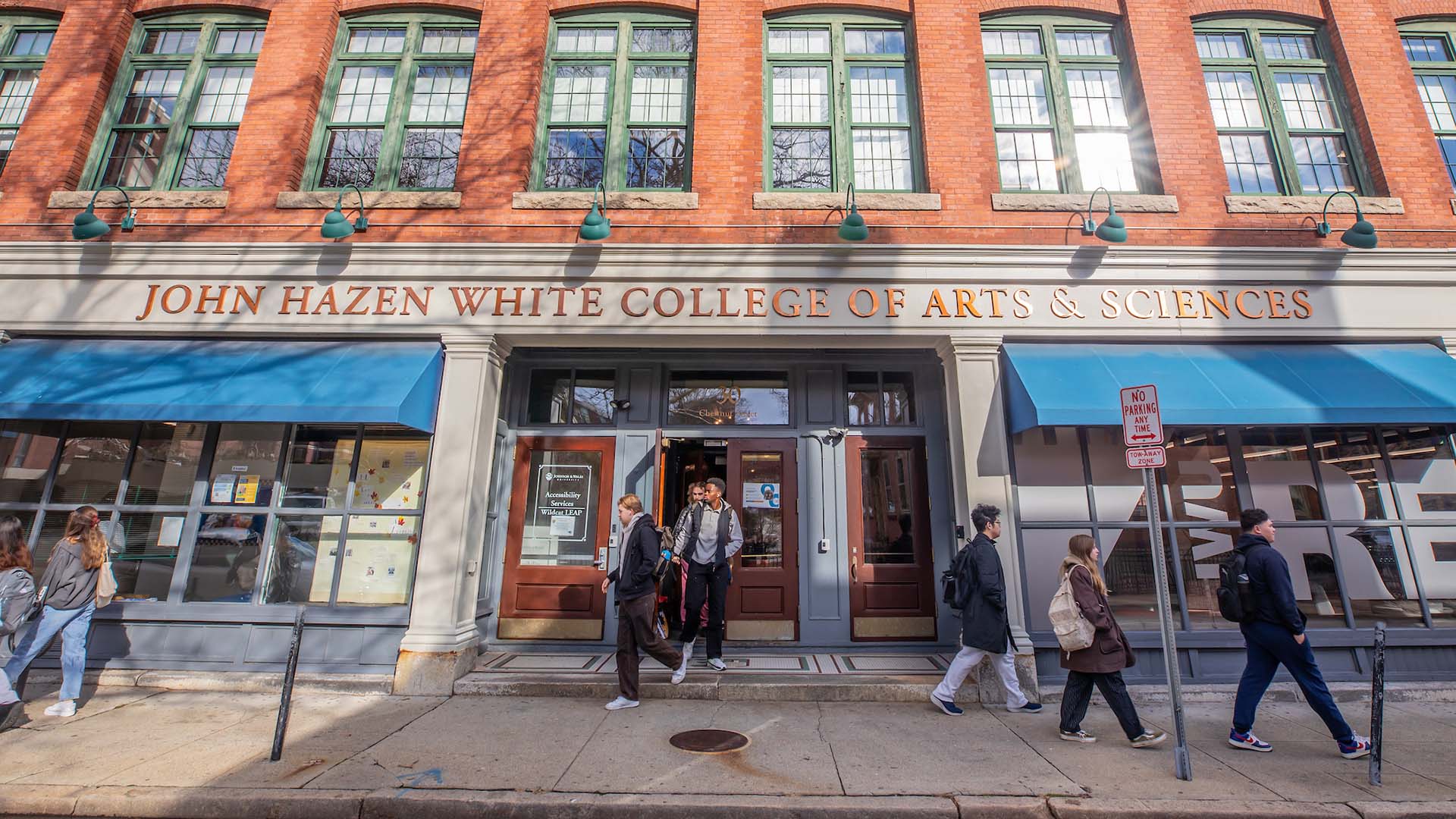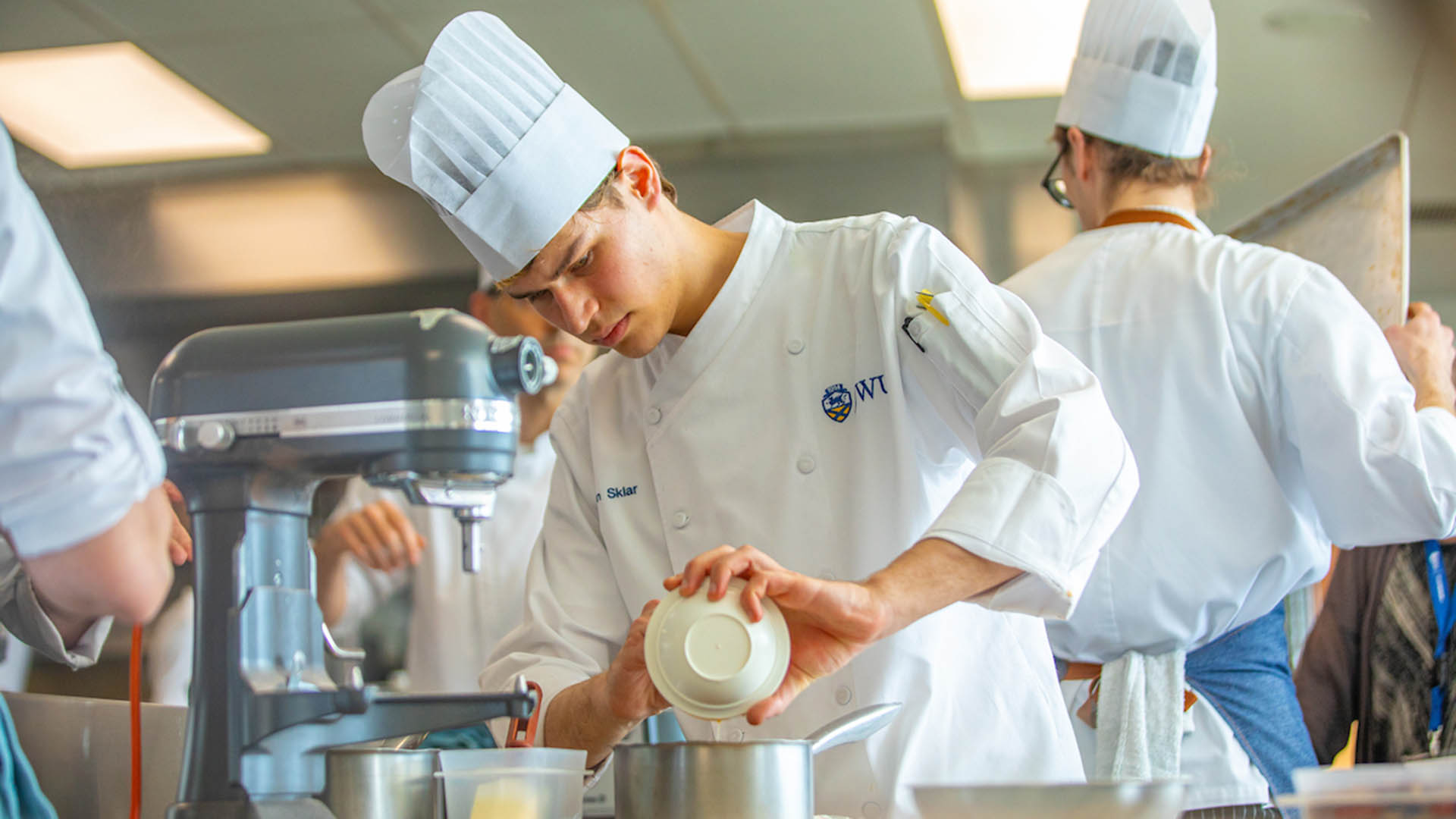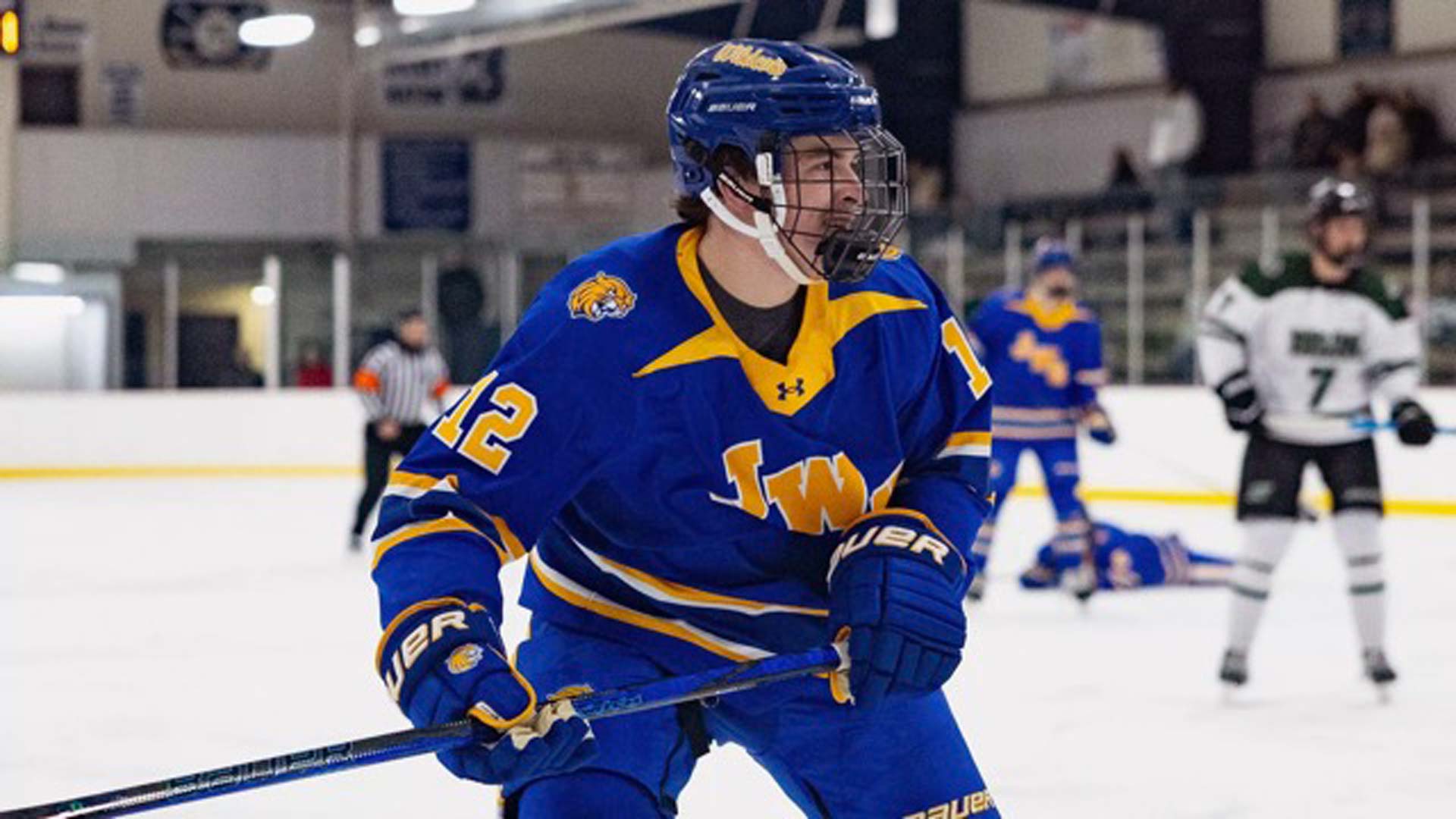Student Research Shines in Academic Symposium
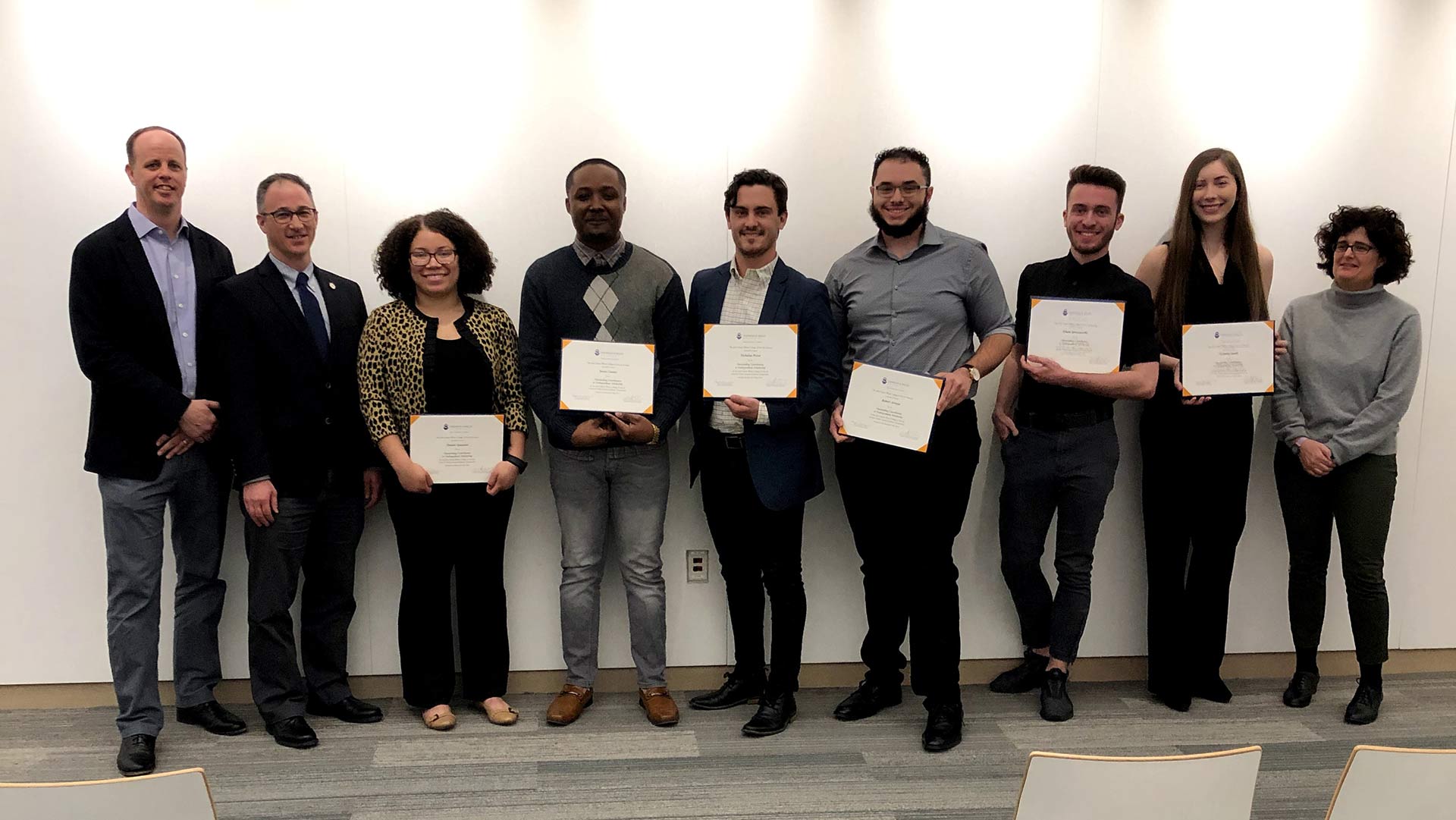
Experiential education is, at its core, interaction — interaction with a field of study, a skill set, or a colleague or mentor. A big part of classroom work, however, involves papers and research projects — things that aren’t always so interactive. So how does Johnson & Wales challenge that typical learning model?
The John Hazen White College of Arts & Sciences puts on an Academic Symposium each year, giving students the opportunity to transform research papers and internships into active presentations. This Symposium not only shows off the breadth of what students learn in the arts and sciences, but gives them a platform to share their research, sharpen their presentation skills, and teach others why the subject matter is important.
Now in its 10th year, the Academic Symposium Committee received a record number of applications from students wanting to share their research with the university community. This, says Scott Oberacker, associate professor of Media & Communication Studies and co-chair of the committee, is a blessing and a curse. The submissions were so varied and so high quality that it made choosing the finalists very difficult; however, the quality of work made every committee and faculty member so proud. “These presentations are a testament to the wide range of exceptional undergraduate work that’s done each year in the College of Arts & Sciences,” Oberacker says.
"These presentations are a testament to the wide range of exceptional undergraduate work that’s done each year."
Students were nominated by professors within the College of Arts & Sciences, but an interesting item of note is that not all students have majors within the college. Students were also not always nominated by professors in their majors (for example, a biology major was nominated by a humanities professor), underscoring the truly interdisciplinary nature of the college. “I think that the Symposium has shed some light on the benefits that many courses at JWU offer,” student Nicholas Pezza says. “They bring together students from all different disciplines within the university."
Jason Coates ’19 (Business Administration) kicked off the presentations by sharing his experience interning with Farm Fresh RI. As part of his internship, he developed a study to help EBT/SNAP users better understand cost comparisons. “The Academic Symposium was not always a goal I had in mind,” Coates says. “The experience not only opened my eyes to the amazing academic work being done by my fellow colleagues, but it also helped me to realize my potential and expand my reach.”
Destini Quinones ’19 (Biology) presented her research on Guillain-Barré syndrome. As part of the initial class project, students had to propose a treatment or course of action. After researching potential causes and effects of the disease, Quinones proposed an alternate type of vaccine to potentially prevent the disease from ever occurring.
"It means a lot to have professors that believe in you enough to nominate your work for something like this."
Ethan Januszewski ’20 (Biology) compared common science fiction tropes and cinematography to those in Guardians of the Galaxy. He started his research with the theory that typical elements in classic films would not appear in the Marvel film, and after analyzing, shared with the audience that the film indeed contained most, if not all, of the classic film elements.
Nicholas Pezza ’19 (Finance) explained the theory of “The Resource Curse” in Africa, meaning that nations rich in natural resources often struggle economically because of those very resources. He tackled the complex economic issue skillfully, breaking down the pattern of resource wealth causing other economic growth to stagnate. “It’s just so great to be at a university where students can be recognized for their work not only in the classroom, but at an event such as the Symposium,” Pezza says. “It means a lot to have professors that believe in you enough to nominate your work for something like this."
Victoria Saadi ’20 (Equine Business Management) taught the audience a little about equine nutrition and the importance of feeding to their workload. As more technology and information becomes available about equine nutrition, the better we’re able to understand how best to keep horses at peak performance level.
Robert Arroyo ’19 (Media & Communication Studies) developed a documentary about the changing state of the music industry. Where once an artist had to find a manager, get signed to a label, and promote through radio channels, with the advent of technology and streaming services, the industry has been turned on its head.
"We won’t see art or wellness or democracies — big, important issues — quite the same way again."
At closing, students were presented with certificates and thanks from professors and audience members. Michael Fein, associate dean of the College of Arts & Sciences, closed off the ceremony with a speech recognizing the outstanding work undertaken by the six presenters. “We won’t see art or wellness or democracies — big, important issues — quite the same way again.”
